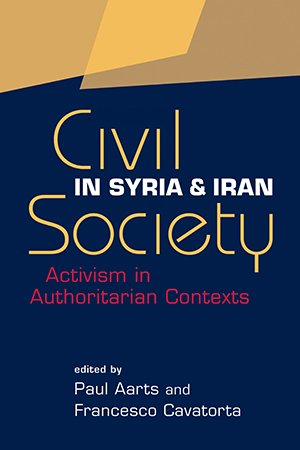
- 2012/259 pages
Civil Society in Syria and Iran:
Activism in Authoritarian Contexts
Hardcover: $62.00
ISBN: 978-1-58826-881-5
Paperback: $25.00
ISBN: 978-1-58826-857-0
Ebook: $25.00
ISBN: 978-1-62637-608-3
What are the dynamics of civic activism in authoritarian regimes? How do new social actors—many of them informal, "below the radar" groups—interact with these regimes? What mechanisms do the power elite employ to deal with societal dissidence? The authors of Civil Society in Syria and Iran explore the nature of state-society relations in two countries that are experiencing popular demands for political pluralism amid the constraints of authoritarian retrenchment.







